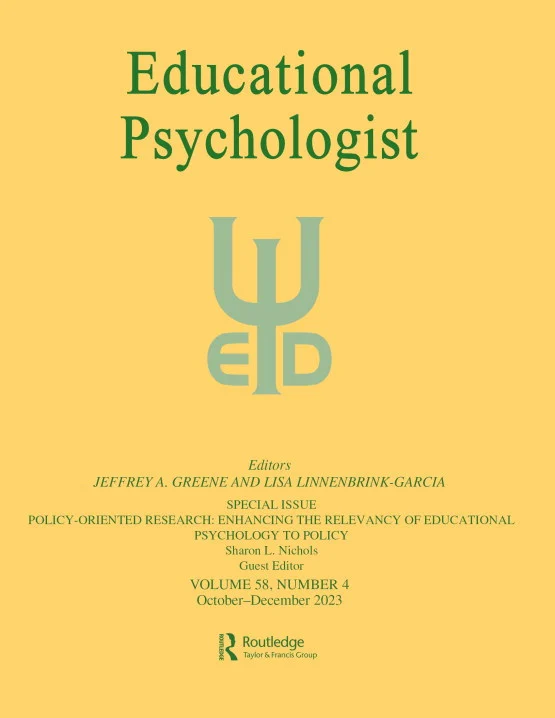The model of threat-infused intergroup feedback: Why, when, and how feedback to ethnic minority learners is positively biased
IF 11.4
1区 心理学
Q1 EDUCATION & EDUCATIONAL RESEARCH
引用次数: 2
Abstract
Abstract This article concerns the positive feedback bias, which occurs when White instructors supply selectively more praise and less criticism to ethnic minority learners relative to White learners. The positive bias is reliable and enduring and affects feedback to various ethnic groups in North America and in Europe. The model of threat-infused intergroup feedback (MOTIIF) is introduced to explain the positive bias. MOTIIF integrates research on feedback practices, interracial dynamics, self-image maintenance, and psychosocial resources to explain why and when the bias is expressed. According to MOTIIF the positive bias is driven mainly by racial anxiety, the concern of many White people that they will reveal self-compromising prejudices, to others or to themselves, when engaging with ethnic minority persons. Inflated praise and muted criticism to ethnic minority learners serve, per MOTIIF, to quell racial anxiety. The article reviews evidence of the positive bias and relates it to the MOTIIF framework. It also discusses how the positive bias can affect ethnic minority learners; how it diminishes their trust in feedback, erodes their self-esteem, increases their stress, and potentially, undermines their learning. The article draws on MOTIIF to consider potential solutions to the positive bias and to recommend future research.威胁注入的群体间反馈模型:为什么,何时,以及如何对少数民族学习者的反馈是积极偏见的
摘要本文研究了白人教师选择性地给予少数民族学习者更多的表扬和更少的批评时所产生的正反馈偏差。积极的偏见是可靠和持久的,并影响到北美和欧洲各种族群体的反馈。引入威胁注入的群体间反馈模型(MOTIIF)来解释正向偏差。MOTIIF整合了对反馈实践、种族间动态、自我形象维护和社会心理资源的研究,以解释偏见表达的原因和时间。根据MOTIIF的说法,积极偏见主要是由种族焦虑驱动的,许多白人担心在与少数民族交往时,他们会对他人或对自己表现出自我妥协的偏见。根据《动机》杂志的说法,对少数民族学习者的夸大赞扬和低调批评有助于平息种族焦虑。本文回顾了积极偏见的证据,并将其与MOTIIF框架联系起来。探讨了积极偏见对少数民族学习者的影响;它如何削弱他们对反馈的信任,侵蚀他们的自尊,增加他们的压力,并潜在地破坏他们的学习。本文利用MOTIIF来考虑积极偏见的潜在解决方案,并建议未来的研究。
本文章由计算机程序翻译,如有差异,请以英文原文为准。
求助全文
约1分钟内获得全文
求助全文
来源期刊

Educational Psychologist
Multiple-
CiteScore
19.10
自引率
3.40%
发文量
16
期刊介绍:
The Educational Psychologist is a scholarly journal dedicated to exploring the psychology of learning and instruction. Articles in this journal encompass a diverse range of perspectives, from examining psychological mechanisms to exploring social and societal phenomena related to learning and instruction. The journal publishes theoretical and conceptual articles, as well as reviews and meta-analyses, that significantly contribute to theory or advance the methods used to explore educational psychology. Emphasizing innovation and advancing understanding, the journal does not publish articles solely reporting the methods and results of empirical studies; instead, all submissions, including reviews and meta-analyses, must offer clear implications for advancing theory. In addition to regular articles, the journal features special issues that delve into important themes in educational psychology, along with focal articles accompanied by peer commentary.
 求助内容:
求助内容: 应助结果提醒方式:
应助结果提醒方式:


